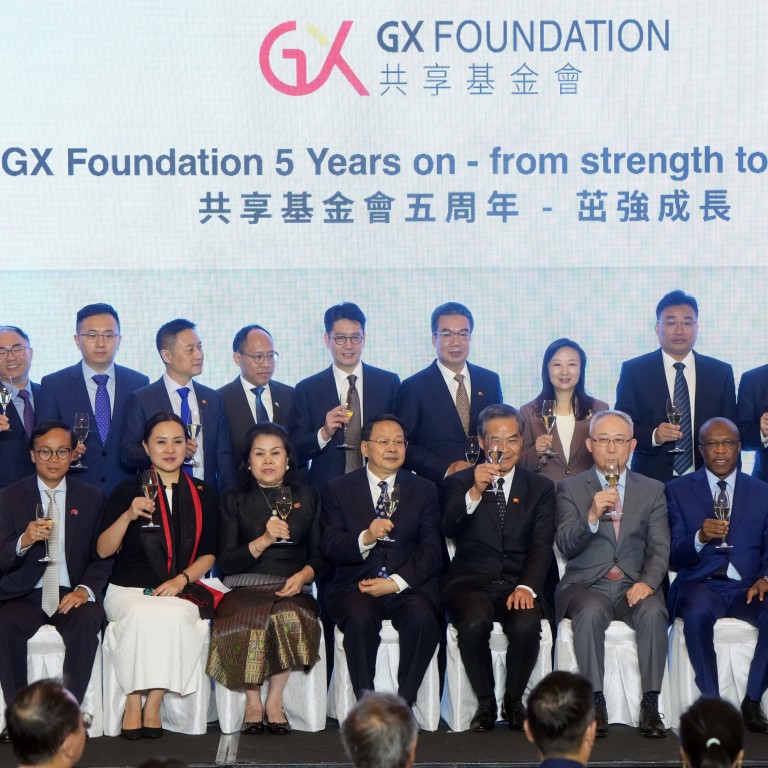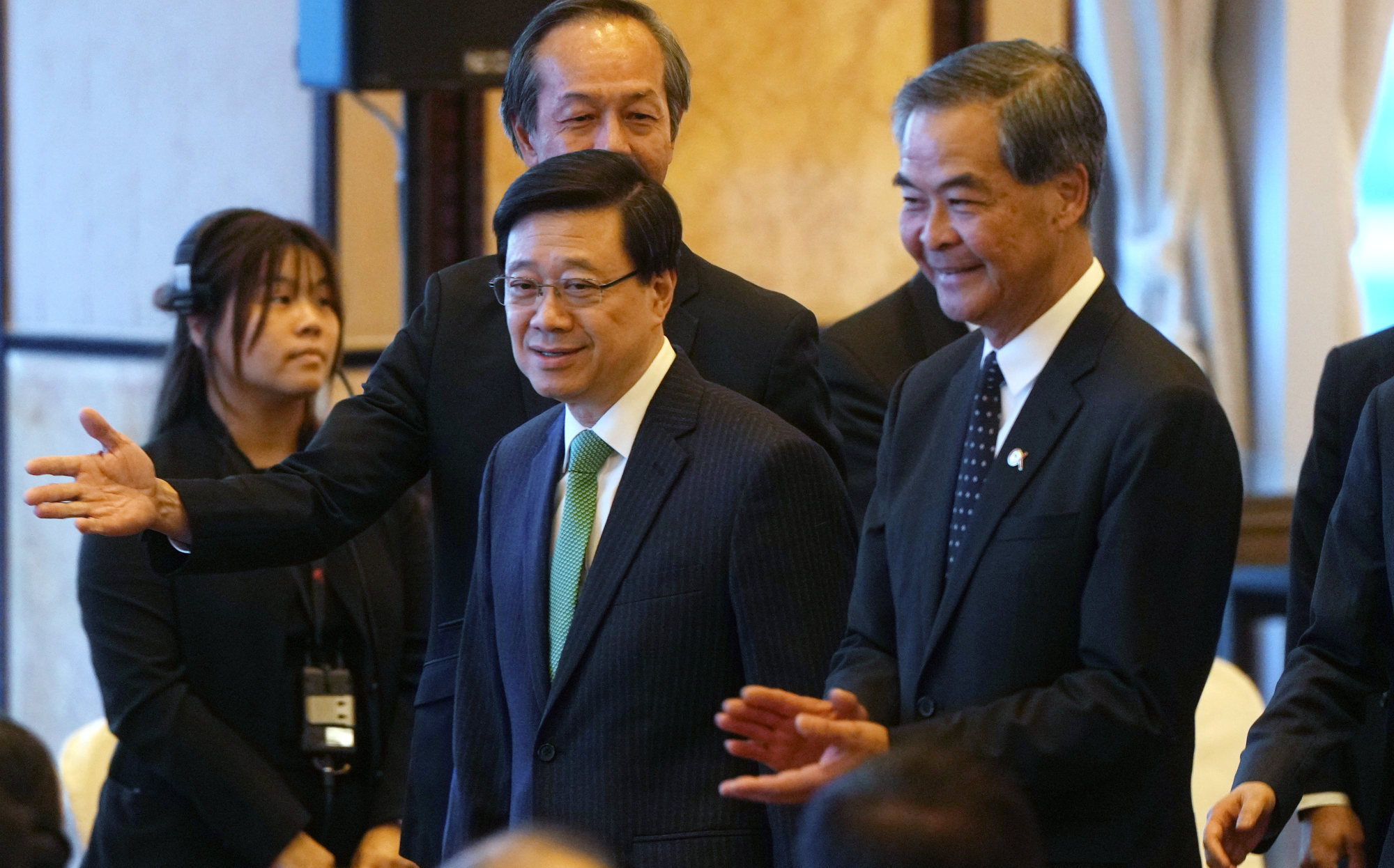
Hong Kong charity touts mainland China cooperation as key to providing 7,300 free cataract operations in belt and road countries
- Operations provided to needy recipients in five belt and road countries, says former city leader Leung Chun-ying, who started GX Foundation
- While Hong Kong has recognised expertise in running charities, city faces constraints in providing medical personnel, which is why working with mainland crucial, he adds
The collaboration with mainland China demonstrated the strength of the “one country, two systems” governing principle, Leung said on Wednesday.
“Each of the 7,000 cases represents a heartwarming story of sharing and people-to-people connectivity between Chinese people and foreign people under the Belt and Road Initiative,” Leung told the audience at a ceremony celebrating his GX Foundation’s fifth anniversary.

Over the past five years, the foundation worked with mainland provincial governments to send medical teams to Cambodia, Laos, Mauritania, Senegal and Djibouti.
As of Wednesday, the foundation had carried out more than 7,300 free cataract operations. It aims to provide 37,500 operations by 2027.
Leung, who now serves as a vice-chairman of the Chinese People’s Political Consultative Conference, said Hong Kong had recognised expertise in running charities but the city faced constraints in providing them with medical personnel.
Chinese NGO fixes eyes while helping state-owned companies build ties overseas
But the mainland offered a larger pool of medical practitioners, and teaming up with Hong Kong allowed non-governmental organisations to go abroad easier, fostering people-to-people connectivity by providing humanitarian assistance to people in need, he argued.
“This shows the strength of one country, two systems,” he said. “Hong Kong itself could not fulfil such a goal.”
Speaking at the same event, Chief Executive John Lee Ka-chiu said Hong Kong’s professional services, including healthcare and medical care, were of international standards and ranked among the best in the world.
He vowed that the city, as a “value-added super connector”, would participate in national efforts to improve global governance and contribute to the building of a community with a shared future for humankind.
Zheng Yanxiong, director of the central government’s liaison office who also spoke at the ceremony, called for the active participation of all sectors of society, including philanthropists and intellectuals, in making new and greater contributions to health causes and promoting shared aspirations along the belt and road network.
Representatives from the countries that participated in the programme also took to the stage to express their gratitude to the foundation and call for more cooperation in the future.
Hong Kong-based foundation hopes to win good will along ‘medical silk road’
GX is short for “gongxiang”, which means “sharing” in Mandarin. Its other projects include sending dengue fever rapid test tools to partner countries.
The group does not receive any funding from the mainland government and all of its donations have come from the business sector. Its board consists of 20 Hong Kong tycoons, as well as senior officials from state-owned conglomerates such as China State Construction Engineering Corporation.

